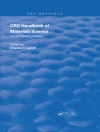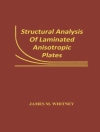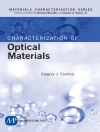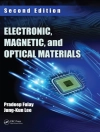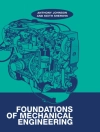This book presents current trends in Mechanics of Time Dependent Materials. It covers a number of cutting-edge themes, such as characterization of linear and nonlinear mechanical behavior of viscoelastic materials and their composites, taking into consideration large deformations, low, moderate and large strain rates, as well as failure and fracture phenomena. The contributions are inspired by advanced applications in modern technologies, such as injection molding and extrusion.
İçerik tablosu
Stieltjes continued fractions and their role in identifying linear viscoelastic material functions.- Viscoelasticity and viscoplasticity of hydrogels with supramolecular and dynamic covalent bonds.- Rheological aspects of 3D printing.- Prof. Igor Emri’s time in Caltech.- Numerical simulation for tensile strength of discontinuous CFRP considering viscoelastic entropy damage.- Mechanical spectral hole burning of polymethyl methacrylate to probe nonlinear viscoelastic behavior.- Time dependent deformation and failure behavior of discontinuous fiber reinforced polymers.- Accelerated testing methodology for durability of polymer composites based on the viscoelastic behavior of matrix resin.- Applicability of “spring-loading” methodology for comprehensive characterization of hybrid structures exhibiting simultaneous creep and relaxation.- Coupled Poroviscoelastic Response of Engineered Bacterial Biofilms- Application of time-temperature superposition principle.- Viscoelastic and viscoplasticbehavior of polymer and composite.- Using asymptotic homogenization in parametric space to determine effective thermo-viscoelastic properties of fibrous composites.- Tensegrity modeling of the viscoelastic cell behavior.- Thermorheological analysis and kinetic modelling of thermo-oxidative degradation of polyethylene.- Quantitative characterization of cracks and contact stresses using photoviscoelasticity.
Yazar hakkında
Prof. Dr.-Ing.habil. Dr.h.c.mult. Holm Altenbach is a member of the International Association of Applied Mathematics and Mechanics, and the International Research Center on Mathematics and Mechanics of Complex Systems (M&Mo CS), Italy. He has held positions at the Otto-von-Guericke-Universität, Magdeburg and Martin-Luther-Universität Halle-Wittenberg, both in Germany. He graduated from Leningrad Polytechnic Institute in 1985 (diploma in Dynamics and Strength of Machines), and was awarded his Ph D degree in 1983 and his Doctor of Technical Sciences degree in 1987 at the same Institute.
He is currently a Full Professor of Engineering Mechanics at the Otto-von-Guericke-Universität Magdeburg, Faculty of Mechanical Engineering, Institute of Mechanics (since 2011), where he has been acting director since 2015. His areas of scientific interest include
general theory of elastic and inelastic plates and shells; creep and damage mechanics; strength theories; and nano- and micromechanics.
Julius Kaplunov has received his Ph D and DSc from the Institute for Problems in Mechanics. Moscow. Later on he has been affiliated with Manchester University and Brunel University of London. Currently he is Professor at Keele University, UK. He has co-authored over 150 publications in the area of solid mechanics, acoustics and multiscale modelling. He serves as an editorial board member of a number of reputed journals, such as Mathematics and Mechanics of Solids, Mechanics of Time Dependent Materials, IMA Journal of Applied Mathematics and PMM Journal of Applied Mathematics and Mechanics.
Hongbing Lu specializes in the mechanics of time-dependent materials, in particular polymers, aerogels, and composites. He is the Louis Beecherl Jr. Chair in the Erik Jonsson School of Engineering and Computer Science. His research interests include nanoindentation, viscoelasticity, experimental mechanics, and the mechanics of nanostructured materials. Dr. Lu was the Professor & PACCAR Chair of Engineering at the University of North Texas, and prior to that he was on the faculty of the School of Mechanical and Aerospace Engineering at Oklahoma State University. He has developed porous nanostructured materials for drastic acoustic attenuation, and applied it for isolating vibrations, and mitigating shock wave.
Masayuki Nakada received his Ph D in 1991 from Kanazawa Institute of Technology in Japan. In 1990 and 1991, he was awarded by fellowship from the Japan Society for Promotion of Science (JSPS). After received his Ph D, he studied at the University of Tokyo as a researcher of JSPS. He was employed by the Kanazawa Institute of Technology from 1992. He was promoted to Professor in 2007. His major is the experimental and theoretical research about the durability of polymer based composite materials. He was visiting professor of Institute for Composite Materials, Ltd., University of Kaiserslautern from Sept. 2001 to Aug. 2002.


